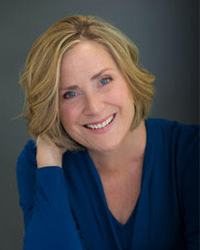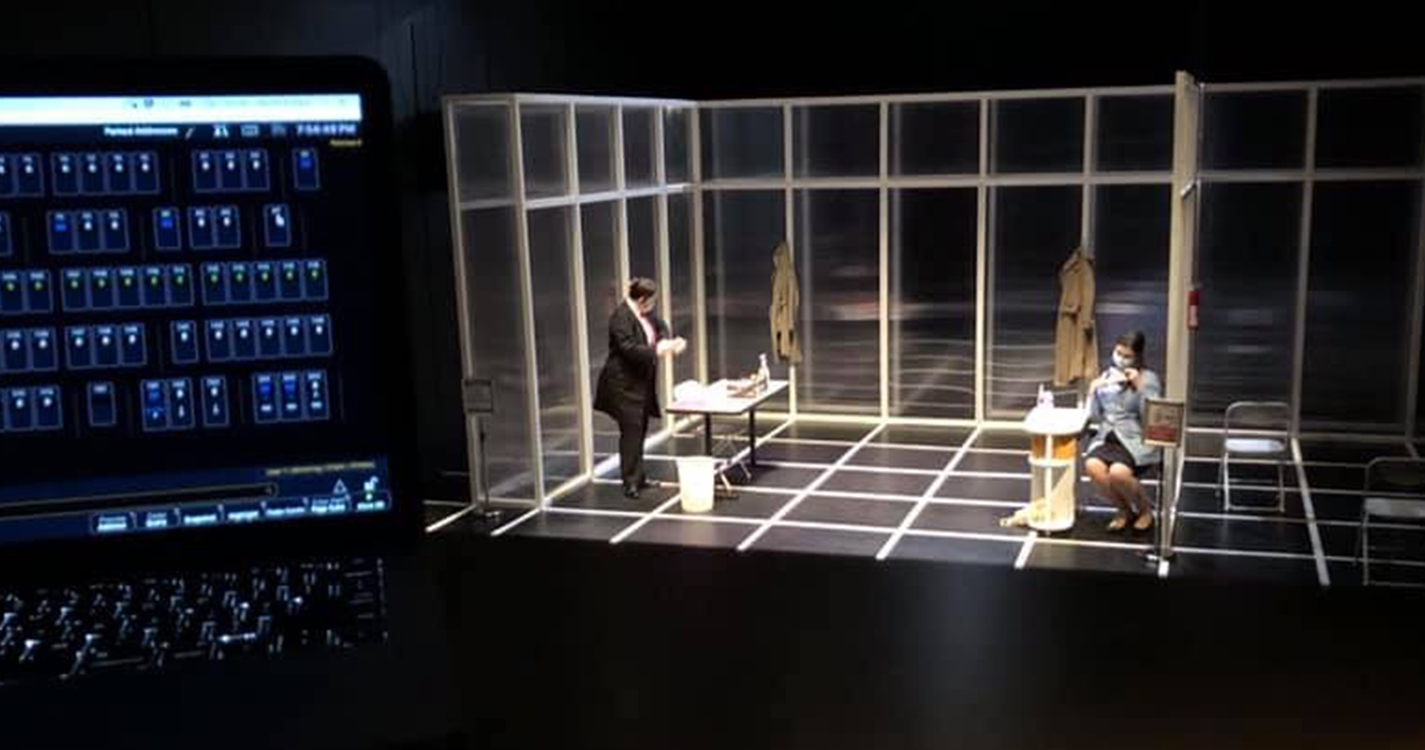Safely producing an onstage play during a global pandemic involves unprecedented challenges. Despite the difficulty, that is exactly what Willamette University Professor of Theatre Susan Coromel set out to do in the fall of 2020 when she directed Vaclav Havel’s bureaucratic black comedy "The Memo," which opened to live audiences in person and online Oct. 29. Shortly before the play opened, I caught up with Professor Coromel and asked her about the difficulties and extra steps the production entailed. Here’s what she had to say.
Andrew Keswick: What were the first steps that needed to be taken for a live theatre production to happen?

Susan Coromel: Willamette University put together a committee called the Reopening Committee (ROC) last spring, and the ROC spent the summer working with all the academic programs to implement CDC COVID recommendations. I was also part of a working group in the arts to research the best practices in our industry. We were aware of two theatre companies on the east coast who attempted to produce summer shows. One was the musical, "Godspell," the other was a solo play, and both were outside with face shields. At first, we were hoping we could use face shields in our production, but as the science around COVID got more specific we knew that face shields would not work. Basically, we knew that if we produced a play this fall it would have to be with masks and physical distancing just as we are doing in our classrooms. So we wrote a proposal to the ROC and were approved for a 20 person audience max with the university’s COVID restrictions in place.
Andrew Keswick: Why did you choose "The Memo"?
Susan Coromel: We were supposed to produce a Shakespeare play but we chose "The Memo" because its absurdist nature could make the play work dramatically with COVID protocols. There isn't a Shakespeare play that works efficiently with COVID, mostly because Shakespeare's plays are usually about love or revenge or a combination of both, and those themes require intimate actions that are impossible to do during COVID.
Andrew Keswick: There are a number of places in which physical contact is intended in the script of "The Memo." How did you get around these issues?
Susan Coromel: COVID safety protocols are nonnegotiable, and with an absurdist play we have the flexibility to create a world where no one makes physical contact. I don’t think the audience misses the lack of physical contact because the world of the play has its own “rules” that become obvious after the first “handshake” which is basically the physical motion of a handshake without any physical touching.
Andrew Keswick: What were the biggest hurdles to get over?
Susan Coromel: I guess the biggest hurdle was staging in a small space but keeping everyone a safe distance apart. The actors were aware of their placement on stage and worked with me to be sure no one was too close.
Andrew Keswick: Why not perform "The Memo" in a different, larger space that could accommodate more people?
Susan Coromel: We always planned to work in our theatre space. There is no reason not to; the air circulates every five minutes. You really can’t get better than that. We originally hoped for face shields because the audience misses something by not seeing actors’ faces. But there isn’t anything to be done about that.
Andrew Keswick: WU’s production of "The Memo" is not only being performed for a small in-person audience but is also being broadcast live online for anyone around the world to watch. What was the process for getting them both to work out? And is this something that might be considered to be integrated into future theatre productions after it is no longer necessary?
Susan Coromel: We integrated the three camera people and the viewing mixer two weeks before the play opened. At first, they watched rehearsals to learn the play. When we got into tech rehearsals they begin to practice streaming the play, and our theatre manager, Stephen Alexander, watched the streamed play to give us notes. It is a great way, as you say to allow our shows to be seen by a larger audience from all over the world. Will we do it once COVID is over? I doubt we will, mostly because the publishing company that holds the performance rights charges more for livestreaming. During COVID, they have been giving theatre companies a financial break, but when we are back to something like normal I am sure the fees will be too high to make it work for our program.
Andrew Keswick: How has this experience shaped WU’s upcoming spring production of "A Bright New Boise"?
Susan Coromel: We are pleased with the outcome of "The Memo." We prepared ourselves and decided to work on the play for two months instead of our regular one month process, and the extra time gave us plenty of time to work out any challenges that COVID presented. "A Bright New Boise" will not have that advantage. That said the cast for BNB have been cast since September, and I am sure those actors are working on their parts now and will be ready to work in person with masks in the spring.
Author bio
Andrew Keswick is a third year theatre major at Willamette University. He worked with Professor Coromel as a cast member in Willamette Theatre's fall production of "The Memo."
Watch 'The Memo' online
A prerecorded broadcast of "The Memo" is available for purchase. You will be able to view the broadcast Nov. 20–30 on YouTube. Subtitles are available.


